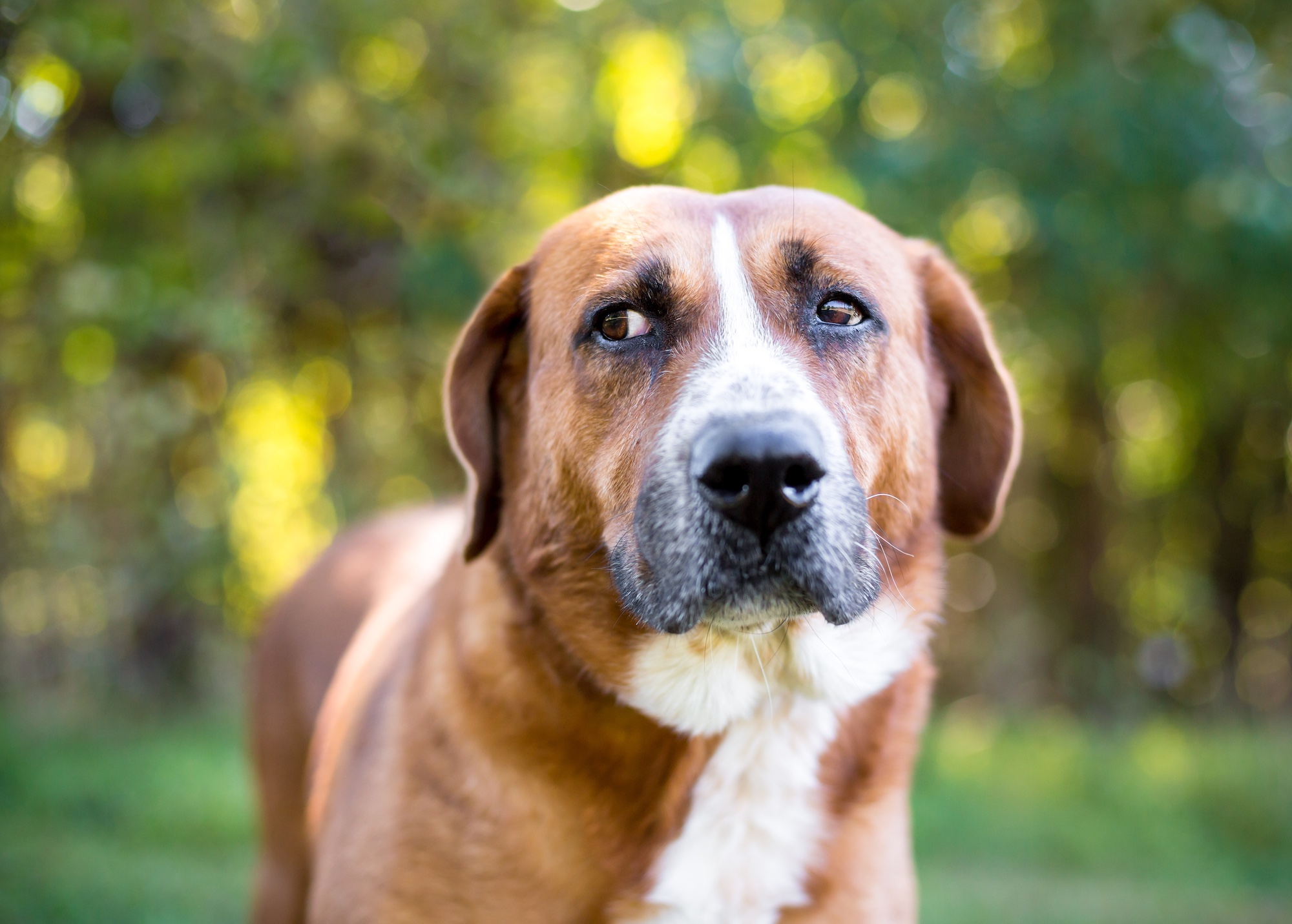British researchers recently published a paper in Scientific Reports showing that dogs can smell human stress, and the odor changes their behavior. The study found that 18 participating dogs were more hesitant to approach a bowl that might contain a treat after they’d smelled the odor of an unfamiliar stressed human than they were after they’d smelled the odor of a relaxed human, or no odor at all. In short, the dogs seemed to act more cautiously as a result of the stress smell.
Dr. Zoe Parr-Cortes, one of the study’s authors, says that it is a reminder of how dogs experience the world. “As humans,” she says, “we have a very visual world. Everything we do, we kind of see it through a visual lens.” Dogs, she says, are different: “Their noses are their primary sources of information.” Keeping that in mind can help us take better care of them.
What happened in the study?
In the experiment, researchers put one dog at a time in a room with a bowl. When the bowl was placed in a particular location, it always contained a food reward. When it was placed in another location, it never did. Through repetition, each dog learned where to expect the food.
Then the researchers placed a bowl in between those locations—not in the spot where it always contained food, but also not where it never did—so that the participating dogs would not be sure whether there would be food or not. They found that, when the dogs had been exposed to the scent of a stressed human stranger, they were more cautious about approaching the bowl in this in-between location. They approached the bowl more slowly, or didn’t approach it at all.
Each dog was tested first in a control scenario, with neither a stressed nor a relaxed human odor. Then, the second test was either with a stressed odor or a relaxed odor, followed by whichever odor remained for the third test. Researchers changed the order of the smells to make sure that dogs’ behavior in the third test wasn’t just a result of remembering what had happened before.
“The comparisons were done within each dog,” says Dr. Parr-Cortes, “so we were comparing each dog to their own baseline. Obviously, each dog is going to have a different running speed, and some will be faster than others.”
How did researchers collect and release the humans’ smells?
To get the stressed-person smell, the researchers asked 11 human participants to complete tasks involving math and public speaking. They collected scents from these humans’ armpits using cotton cloths, which the participants also breathed onto. Later, the researchers collected scents from those same human participants after they’d sat on comfortable furniture and watched soothing nature videos. The researchers kept the cloths in jars, and opened them to release the odors and test their impact on the dogs. Control cloths had neither the stressed nor the relaxed odor.
What do the experiment’s results mean?
The experiment showed that the smell of a stressed human seemed to change dogs’ behavior, even when the dog didn’t know the person. Dr. Parr-Cortes says this is not surprising—and that, to some extent, dogs’ changing their behavior in the face of such an odor could have benefits. “I think it’s an appropriate and normal response in an appropriate situation,” she says. “But obviously, in the same way as too much stress or stress in situations where there’s no real threat is not generally good for us, being too pessimistic or too risk-averse is also not great for dogs if it’s happening all the time. So it is a survival mechanism, but if it’s in the wrong situations, or more than usual, then that’s where it can be negative.”
Dr. Marc Bekoff, an ethologist and professor emeritus of Ecology and Evolutionary Biology at the University of Colorado, Boulder, who was not involved in the study, agrees. He remembers studying foxes who would avoid areas where they’d smelled stress pheromones. “It doesn’t mean they’re sad,” he says. Dr. Bekoff says that an aversion to those pheromones “is probably among the hardwired responses” the foxes have to certain stimuli, like high-pitched sounds that many animals want to stay away from. “They don’t sit around and ponder—they leave the situation because there’s survival value in it,” he says. “If these were wild animals,” he continues, “they would have a very good reason why they might respond in the way these dogs did. They can’t take risks, and they need to avoid situations where they can be harmed. So the best thing is to be cautious.”
The results also show that the change in the dogs’ behavior didn’t have to do with any personal relationship they had with a particular human, since the odors came from strangers. “There have been studies where they stressed the owner out and asked the dog to do a task,” Dr. Parr-Cortes says, “but we don’t know how many cues they’re picking up on: the owners’ behavior, what they’re saying, their vocal cues… and how much of it is odor.” In this case, researchers were able to isolate the effect of a stranger’s odor on the dogs’ behavior.
In everyday life, Dr. Bekoff says, dogs will take in “composite signals” involving smells, sights, and sounds, and change their behavior based on all of them. But in this experimental setting, odor alone seemed to be enough to shape the dogs’ actions.
What can I do to avoid stressing my dog out?
Any human being will inevitably experience stress at some time or another, so you can’t expect that your dog will never sniff out that you’re upset. But knowing that your dog can smell stress, and that it could make them more cautious, can still help with your caretaking.
“Particularly with training,” says Dr. Parr-Cortes, “[make] sure that you’re not in a very stressed state—or, if you are, don’t push your dog too much… it’s probably not worth having a negative training session with your dog versus [skipping training] that day.”
This study suggests that a dog might be more receptive to their training if they’re around a person who smells relaxed as opposed to one who smells stressed. And, of course, lots of praise, treats, and fun activities will help as well.
Dr. Bekoff says that the research reinforces the importance of taking our dogs’ feelings seriously, even if we can’t see, hear, or smell what’s bothering them—for example, if they start to act scared on a walk. “Don’t blow off their feelings,” he says. Instead, “be very supportive” by trying to figure out what’s troubling them and how to make them feel better. And this goes for things that your dog feels good about, too—you might not understand why your dog wants to smell a certain spot for 10 minutes in a row, but rest assured that they find it entertaining.
Ultimately, Dr. Parr-Cortes hopes that humans will see her study less as proof that we’re stressing our dogs out, and more as a confirmation of our bond. “I think it should really be taken more as an indication of how close we are with dogs,” she says, “and how in-tune they are with our emotions.”










